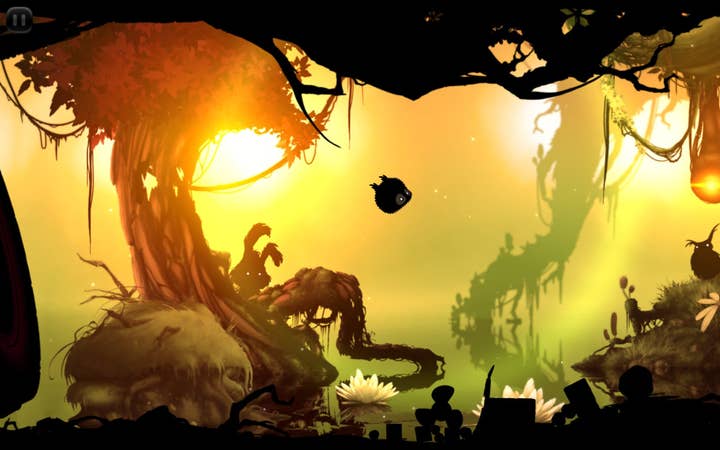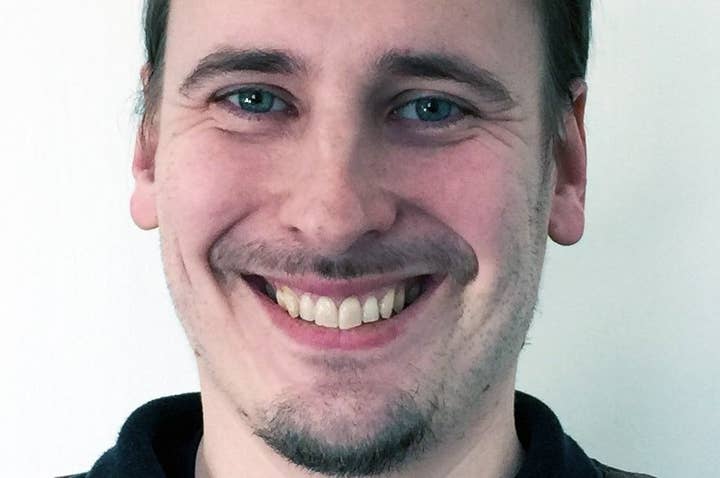"It's Open Season for Premium Creators" - Badland dev
Frogmind's COO shares his learnings on how to leverage a competitive multiplatform landscape
Through lower barriers of entry (self-publishing, early access, etc.) and steadily (if slowly) improving discoverability tools (Twitch/YouTube outreach, curation, perennial digital sales), premium indie developers no longer have just one blind shot to make money on their game. There's more room than ever for longer marketplace strategies that parcel out revenue progressively over time rather than one huge spike of sales and interest. Today you can put out a game and take your time bringing it to additional platforms. That trend's great on its own, but the less obvious upside is how being free from having to hit your maximum potential audience in one burst opens up new ways to manage development.
Our action-adventure game, Badland, arrived in spring 2013 on iOS, with versions on Android and Windows Phone 8 coming soon after. With a core experience still growing through updates and an Apple iPad Game of the Year Award behind our backs, we had a lot of options ahead of us. And that presented its own challenge to overcome.
More so than ever before, devs can take their visions anywhere they choose, whenever they choose. But taking your game to new platforms is not a trivial venture. While the major platforms are converging in capability, the communities that fuel them are perhaps more fragmented than ever. Different systems attract different users and produce different expectations, and games that play toward one set of controls and customs may not work well within the cultures of other systems.
It took us two full years to ready Badland for its next step - a simultaneous launch on eight platforms, including Steam and most major consoles. It's been a colossal undertaking, but we've learned a lot along the way about how to keep it all together when it's open season for your creations.
"Teaming up with like-minded peers with more experience than you on certain systems can be an effective way to produce all the output of a big studio without ballooning your staff and budget"
Make it Right the First Time
Being able to figure out what your game even is before having to make it function, much less excel, on every platform available is one of the best assets developers have today. The first release of your game is your base of operations, from which you can launch your assault on other systems. So much of the momentum begins with that first impression, so it's crucial to get it right from the beginning.
It's worth thinking about the future if you can afford it - about how your designs today might work on new systems tomorrow. If that means using software now that'll prove more universal down the road, so be it. But don't deprive the task ahead of you because you're holding out for all those future releases destined for later.
Part of that process is also deciding where to launch your game first. For what it's worth, Steam and mobile are very strong places to start from. While the thresholds for developing premium indie games on consoles have improved, there are still more gates that require more resources to pass through. Yes, they have a great deal of power to amplify your game's presence, but far more so if you already have a record to stand on.
Platforms Don't Bend
There's more to bringing your game over than just changing the labels on the button prompts. Each release has to stand as a wholly individual creation for a totally new audience. Players on new platforms don't care if their system isn't as great a fit for your design as the original was. That product you ship has to be made for them specifically with their expectations in mind.

Even with a proven hit to start from, living up to that standard can be a difficult task. Badland was born on tablets and smartphones with touchscreen controls and sensibilities in mind; making it work with a gamepad required throwing that philosophy out and starting from scratch. Even something as simple as letting players move back and forth within a level - which console players will generally assume they should be free to do - forced us to retune every single stage in the game. But that's what it takes. You want the game to be the best version on each platform.
You're Not Alone
Remember that, as an indie, you aren't stuck between going it alone or signing up with a publisher (though those can work perfectly well, too). Even with a successful title to stand on, bringing a game to eight different platforms at once was still an undertaking far beyond Frogmind's resources. Instead, we sought out other developers to partner with: Frozenbyte and BlitWorks. Teaming up with like-minded peers with more experience than you on certain systems can be an effective way to produce all the output of a big studio without ballooning your staff and budget. Finding partners that share your regard for quality is important. Even when outsourcing, setting that bar is still up to you.
Being independent gives you the freedom to make the kinds of games you want the way you want to make them, but it's your ability to stick to one plan when the field is open that matters the most. By choosing your fights in the right manner, you can create experiences that work on any platform. The only things holding you back are talent and discipline, things you absolutely have control over.








